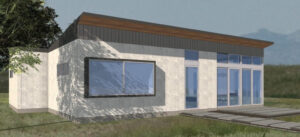
First modular standards aim at consistency in design, construction, regulation
The modular standards align requirements for review, approval, permitting and inspection across multiple jurisdictions
In March of last year, Salt Lake City adopted the nation’s first two consensus standards — ICC/MBI 1200-2021 Standard for Off-Site Construction: Planning, Design, Fabrication and Assembly and ICC/MBI 1205-2021 Standard for Off-Site Construction: Inspection and Regulatory Compliance — which provide minimum requirements for off-site and modular construction to safeguard public health, safety and general welfare, and address the challenges posed by the need for local inspection and regulatory compliance. The new off-site construction standards give Salt Lake City builders a map for the greater use of modular homes and other off-site construction options.
The International Code Council and the Modular Building Institute (MBI) worked jointly to create the standards, recognizing the challenges many communities face in delivering affordable housing, particularly in the face of soaring material costs and a persistent lack of labor. These standards can help communities realize the impact and benefits of off-site construction while also assuring local building codes and safety are maintained. Off-site construction can also support jurisdictions achieving their goals of sustainability and job site safety.
“The Code Council family already offers multiple solutions to support the safe and efficient use of off-site construction. However, as we continue seeing a surge in global demand for off-site construction, we knew more guidance would be necessary, to add consistency to a global market,” said Code Council Chief Executive Officer Dominic Sims, CBO. “The new standards align perfectly with the Code Council’s mission to ensure building safety. The standards are also part of our commitment to encourage affordability, in this case by lowering the regulatory barriers to trade, that off-site products often face by having to navigate a patchwork of regional regulations.”
ICC/MBI Standard 1200-2021 addresses important facets of the off-site construction process, including planning, designing, fabricating, transporting and assembling commercial and residential building elements. This includes componentized, panelized and modularized elements. ICC/MBI Standard 1205-2021 addresses the inspection, approval and regulatory compliance of off-site residential and commercial construction components, as well as their assembly and completion at the final building site. This includes permitting, in-plant and on-site final inspections, third-party inspections, the role of industrialized building departments, state modular programs and the authority having jurisdiction. These new American National Standards were developed by the Off-Site and Modular Construction Standard Consensus Committee under the Code Council’s ANSI Approved Consensus Procedures.
The aim of the two complementary off-site construction standards is to bring consistency to off-site projects — for manufacturers, building teams and regulators. According to Ryan Colker, vice president for innovation for the International Code Council, the standards offer a path for third-party inspection at the plants, before finishes hide structure, wiring, ductwork and plumbing, which is important because building officials are not typically authorized to travel outside their jurisdictions.
In Salt Lake City, modular accessory dwelling units, typically sited in backyards, were not allowed by code because they were not regulated by the city. And the situation is not unique to Salt Lake City. Thirty-five states that regulate modular construction have slightly different requirements for design review and approval, permitting and inspection. The same is also true for jurisdictions that regulate modular projects using codes written for onsite construction, which is a large problem for building teams.
David Tompos, director of marketing for ICC NTA — a third-party inspection service for off-site projects, owned by the International Code Council — says that the situation “wastes a lot of time” and causes unnecessary expense for modular units manufacturers to ship to sites outside their jurisdictions or for building teams in many jurisdictions forced to follow different requirements for submittals, quality-control manuals and inspection.
The Code Council and MBI are continuing their partnership with the future development of additional off-site construction standards, including Standard 1210-202X, Standard for Mechanical, Electrical, Plumbing Systems, Energy Efficiency and Water Conservation in Off-site Construction, which will address requirements for mechanical, electrical and plumbing system elements, energy efficiency and water conservation in off-site construction projects. The Off-Site Construction Mechanical Electrical and Plumbing Standard Consensus Committee (IS-OSMEP) was appointed by the Code Council Board of Directors in September 2021 and the first public virtual meeting of the committee was held on Dec. 15, 2021. The committee created workgroups for the purposes of developing the content for the initial draft. The most recent meeting was held on Jan. 19, 2022, and the next meeting is scheduled for Feb. 9, 2022.
For more information on the Code Council’s off-site construction activities, visit its Off-Site Construction resources page.
SOURCES: Engineering News-Record, International Code Council, Modular Building Institute











